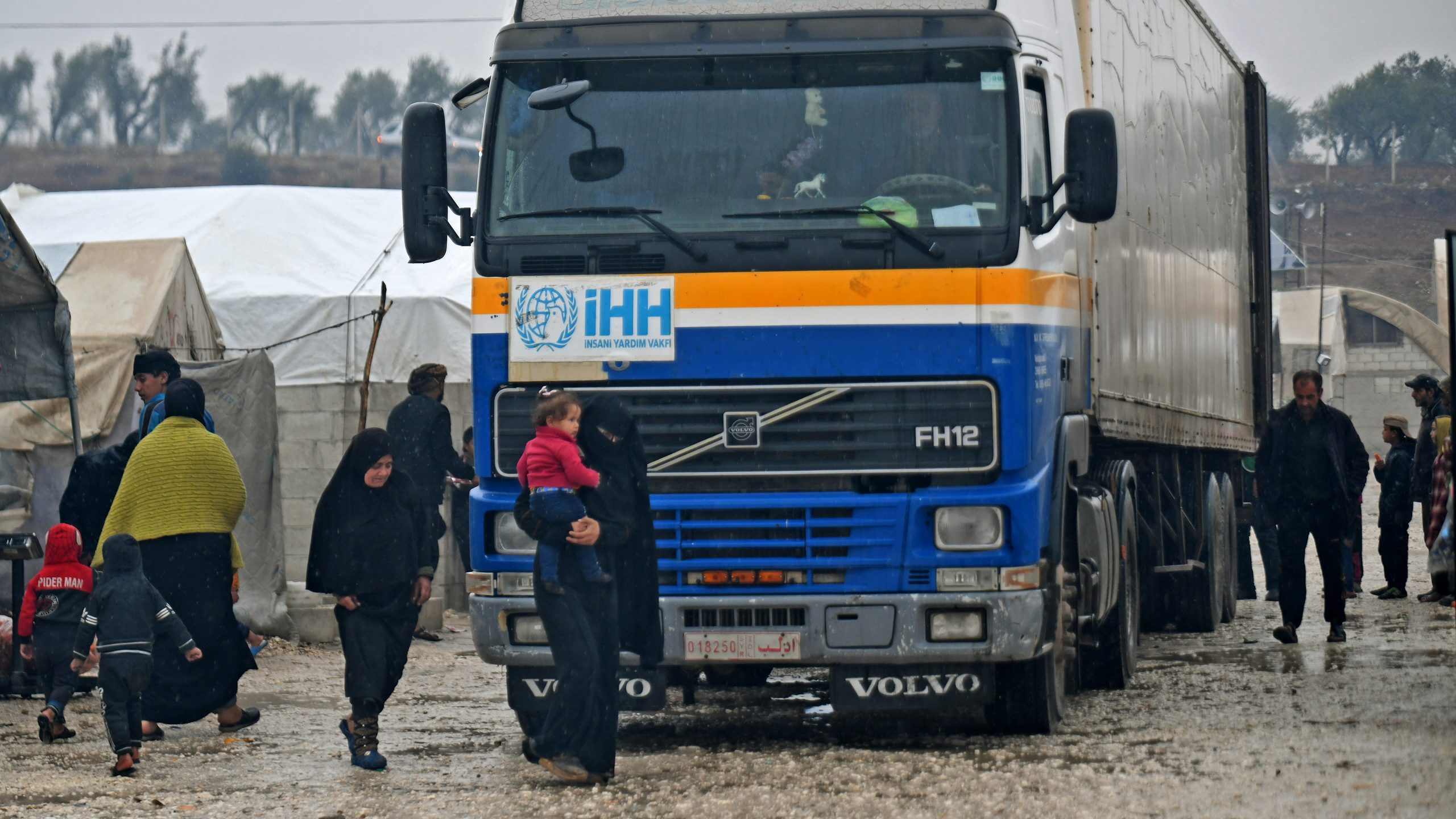Cross Border aid to Syria, which transits from Turkey to rebel-held regions through the Bab al-Hawa border crossing without the need to pass by the Syrian regime, was extended de facto for an additional six months. Voted at the beginning of the month of July for 6 months, renewable once, in a rare moment of consensus between the UN Security Council members. Set to expire on January 10th, western countries had interpreted that the renewal would be automatic, while Russia, which claims that the mechanism violates the sovereignty of Syria, had argued that the extension should be subjected to a new vote by the Security Council. For Moscow, aid should first be delivered to areas held by the Syrian regime, before being distributed to rebel-held regions.
The pro-government newspaper al-Watan reported that the extension of the mechanism was not automatic, thus that cross-border would be suspended pending a UNSC extension. “This crossing must be closed and humanitarian aid delivered through Damascus, and across the frontlines to the areas controlled by terrorist groups”, the newspaper quoted a Russian expert as saying.
However, on January 11th, the pan-Arab al-Araby al-Jadeed said that cross-border humanitarian aid to northwest Syria was de facto extended for six months without a new UNSC vote. The London-based news outlet reported that the Bab al-Hawa crossing serves 3 million Syrians living around Idleb, outside of the control of the Syrian regime.
Previously, a report by the UN Secretary-General had argued that the suspension of cross-border aid would have a negative effect on the population in Idleb, claiming that there was no alternative to the mechanism. The report came under harsh criticism from pro-government circles. For example, al-Watan wrote that Damascus has called the report by Guterres “subjective” and “unrealistic”, claiming that it ignores the “disastrous effects of coercive measures and the illegal sanctions imposed by the United States and the European Union, which had imposed suffering on every Syrian”.
“Any objective assessment of the complexities related to the humanitarian situation in Syria would lead to the same conclusion: the main reason for the humanitarian crisis is the Turkish occupation, with its practices, crimes, and sponsorship of terrorist organizations in northern and northwestern Syria”, the paper wrote.
Northwestern Syria is crowded with internally displaced Syrians, living in harsh conditions. The recent depreciation of the Turkish lira worsened the already fragile situation in the region, as the lira is widely used there, the Qatari news website al-Jazeera reported.
For weeks, Russia and the regime have been escalating their bombardment campaign over Idleb, targeting vital infrastructures such as water, or poultry farms.


